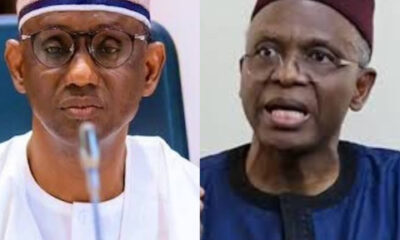Business
C-PACT Summit: President Tinubu’s Call for Measurable Outcomes in Africa’s Trade Integration
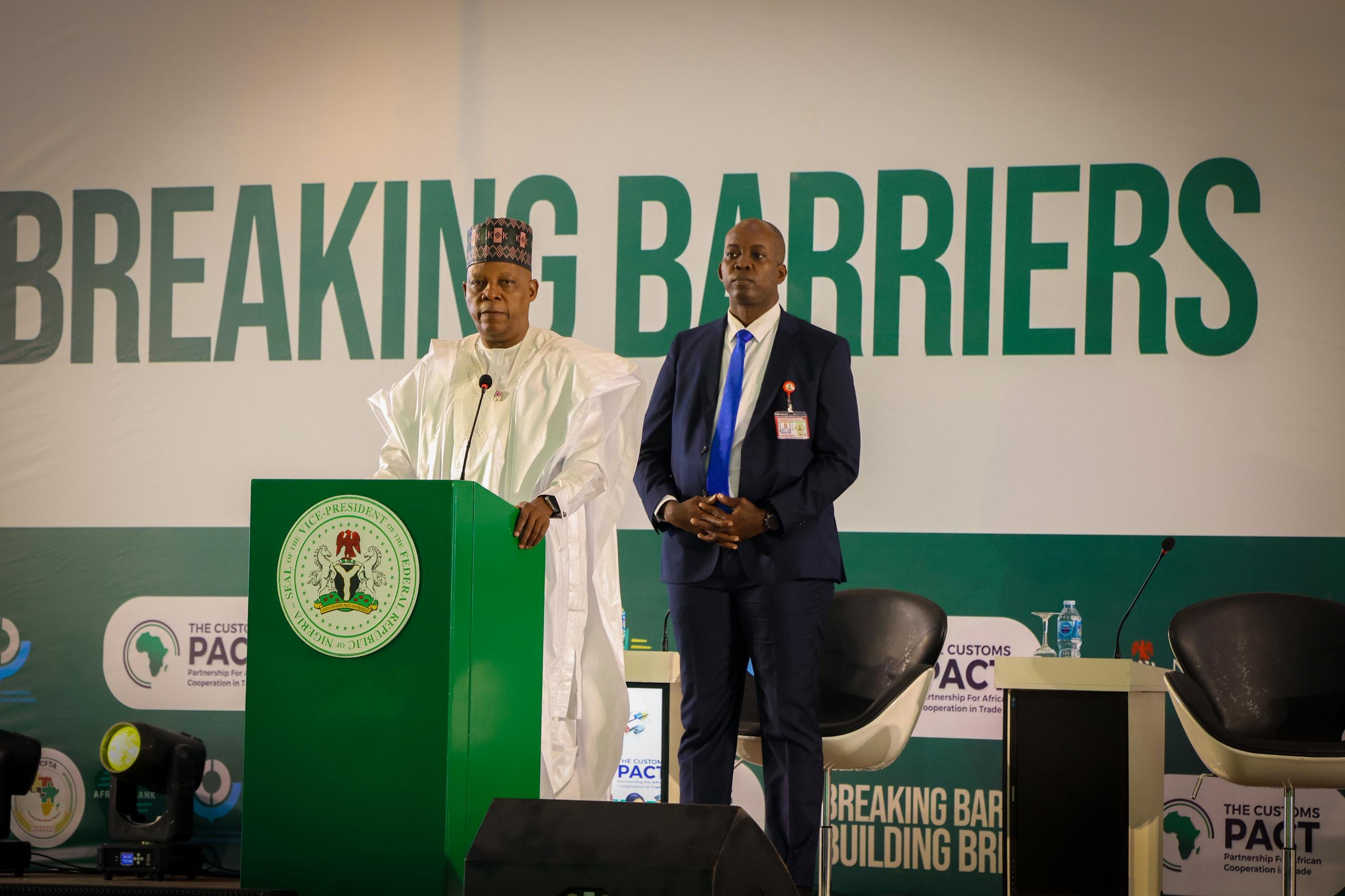
BY EGUONO ODJEGBA
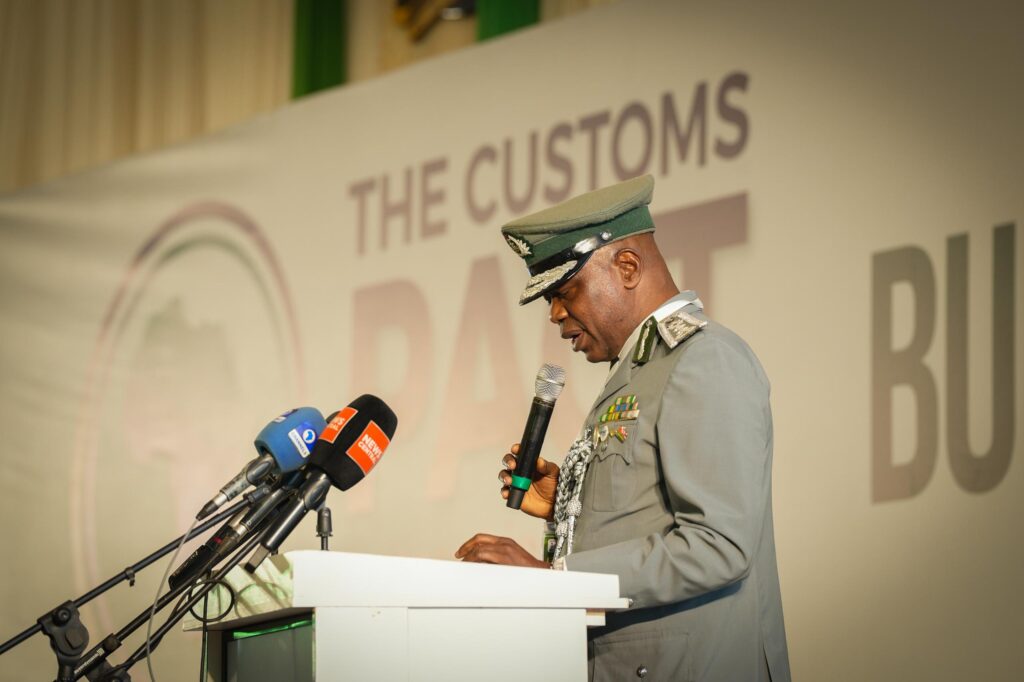
Adeniyi giving his welcome address during the summit
At the maiden Customs Partnership for African Cooperation in Trade (C-PACT) Summit in Abuja, President Bola Ahmed Tinubu, represented by Vice President Kashim Shettima, delivered a message that cut through the rhetoric often surrounding Africa’s integration agenda: commitments must translate into measurable outcomes.
His words—“Integration cannot be declared. It must be engineered”—were therefore, taken seriously, not mere political sound bites but a sober reminder of the continent’s history of lofty declarations that failed to materialize into tangible benefits for traders, manufacturers, and logistics operators.
All things being equal, the import of President Tinubu’s admonition would no doubt help in providing a proper re-orientation for individual African governments trade policy planning and implementations. Africa’s economic potential is undeniable. With a population of over 1.4 billion and the African Continental Free Trade Area (AfCFTA) promising to create the largest single market in the world, the stakes are high. Yet, past experiences have shown that declarations alone do not dismantle barriers. Tinubu’s call is rooted in several pressing realities as clearly outlined by participants at the summit: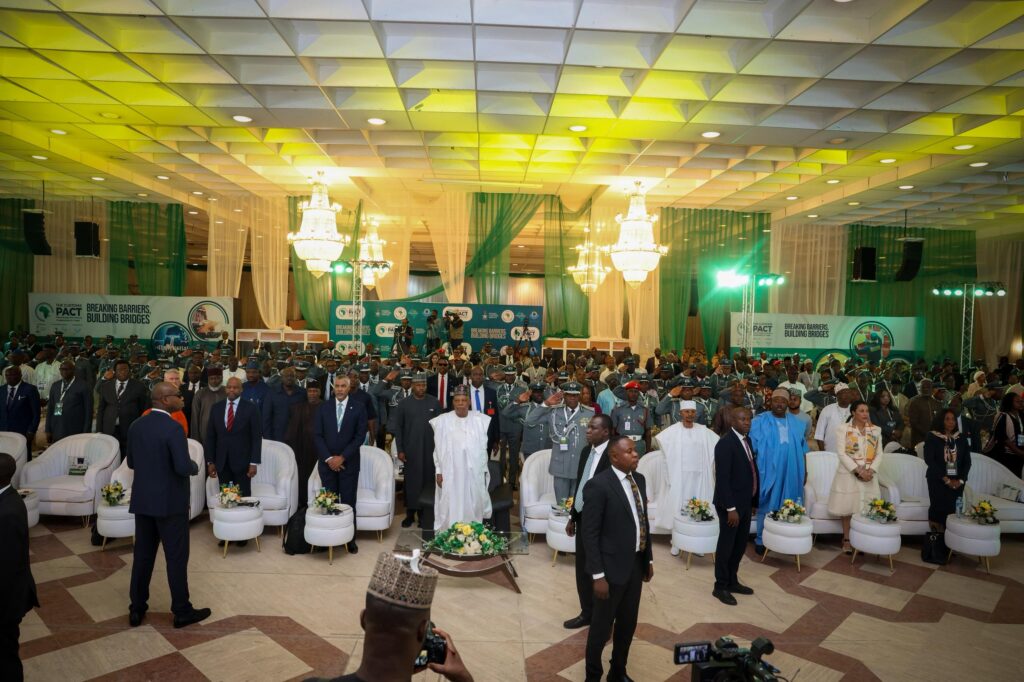
Fragmented markets: Despite regional agreements like ECOWAS, intra-African trade remains below 20% of total trade, largely due to inconsistent implementation of commitments.
Inefficient borders: Cargo clearance delays, non-tariff barriers, and outdated Customs systems inflate costs and discourage cross-border commerce.
Failed precedents: Initiatives such as the ECOWAS Trade Liberalisation Scheme faltered because member states did not consistently enforce agreed rules, leaving businesses frustrated.
Global competitiveness: Without harmonised Customs operations and digitisation, African economies risk being sidelined in global trade flows.
AfCFTA’s credibility: The success of AfCFTA hinges on Customs efficiency—rules of origin enforcement, preferential duty implementation, and seamless trade facilitation.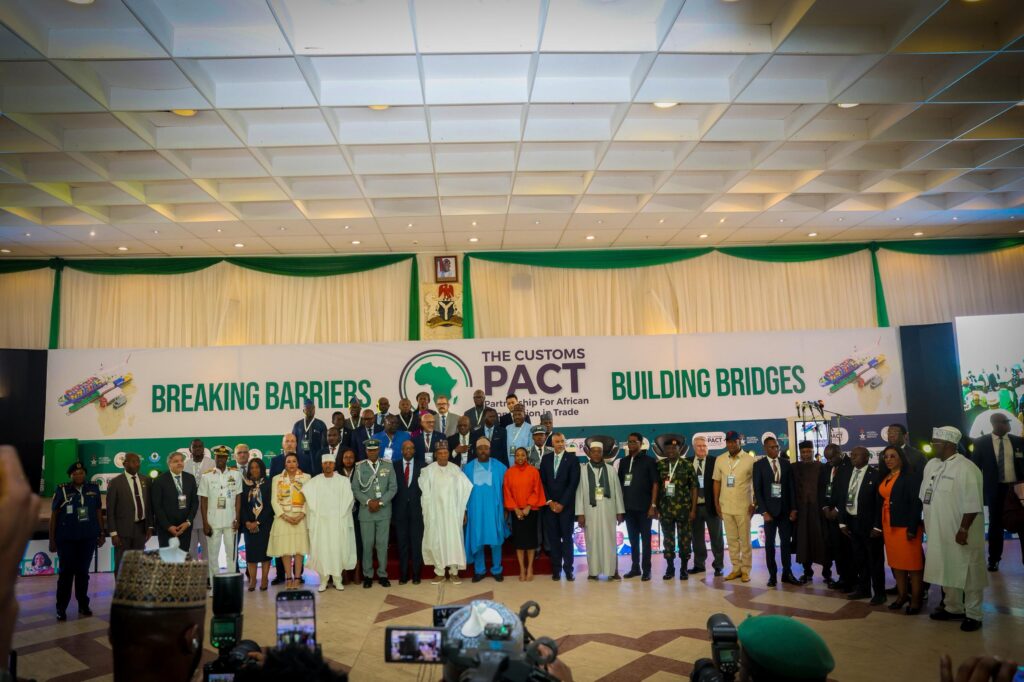
Perhaps, Nigeria’s example encapsulated in the remarks of Vice President Kashim Shettima and the Comptroller General of the Nigeria Customs Service, Adewale Adeniyi, provides a solution based compass that can be replicated as a fine continental trade framework.

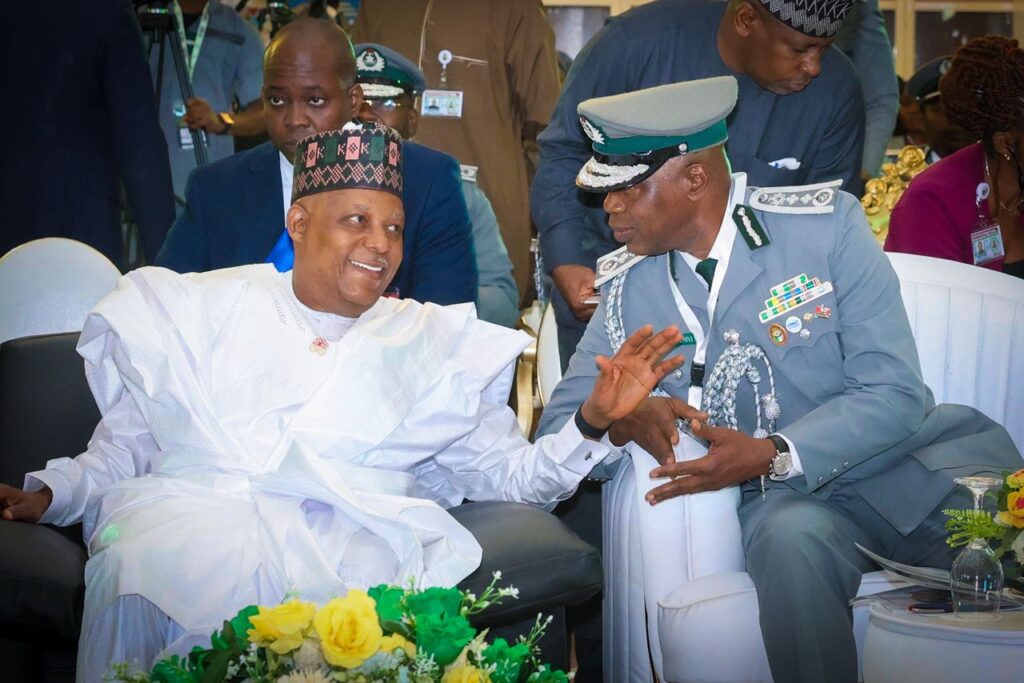
VP Shettima and CGC Adeniyi in a tete-a-tete during the meeting
Nigeria’s reforms regime —exchange rate unification, subsidy removal, port modernisation, and Customs digitalisation—are clear indicators designed to create a trade-friendly environment. The upcoming National Single Window, expected in March 2026, will reduce clearance timelines from 21 days to under seven days, aligning Nigeria with AfCFTA’s digital trade requirements. This is precisely the kind of measurable outcome Tinubu insists Africa must pursue.
For traders and manufacturers, integration is not about communiqués but about reduced cargo delays, predictable tariffs, and interoperable systems. Tinubu’s emphasis on outcomes reflects the lived realities of businesses that struggle daily with fragmented policies and bureaucratic bottlenecks.
Without any gainsaying, President Tinubu’s admonition is not only timely but instructive. Africa cannot afford another cycle of declarations without delivery. The continent’s leaders must engineer integration through:
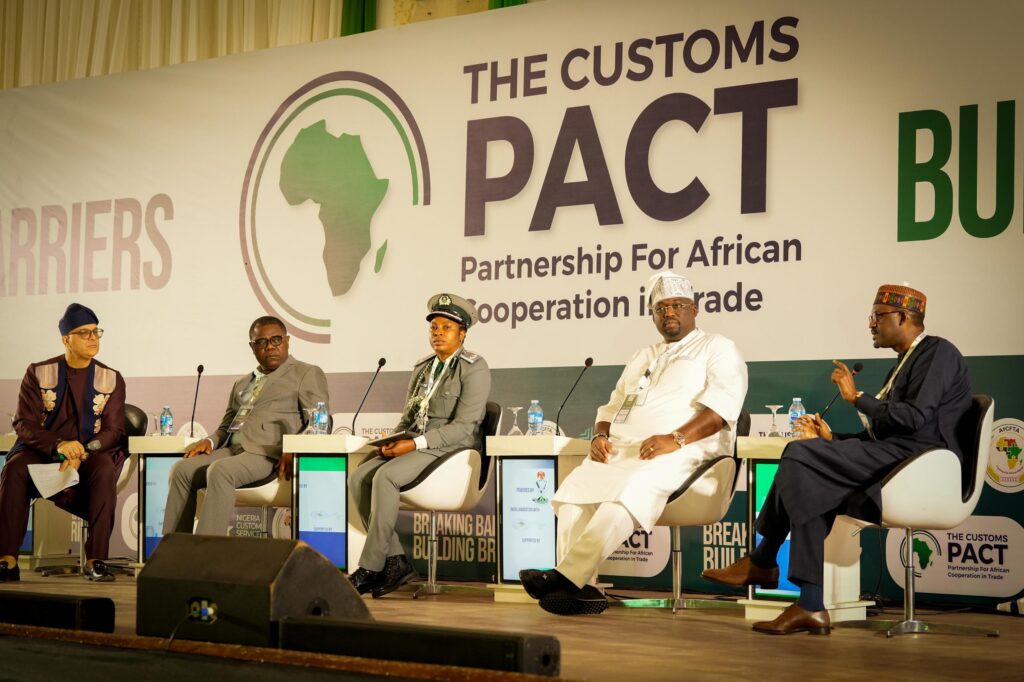
A panel session during the meeting
*Technology-driven Customs systems that cut clearance times.
*Institutional alignment across regions to ensure uniform enforcement of trade rules.
Capacity building to prepare Customs administrations for AfCFTA’s demands requires robust private sector participation such that overall, these reforms can reflect the realities of those who move goods, daily.
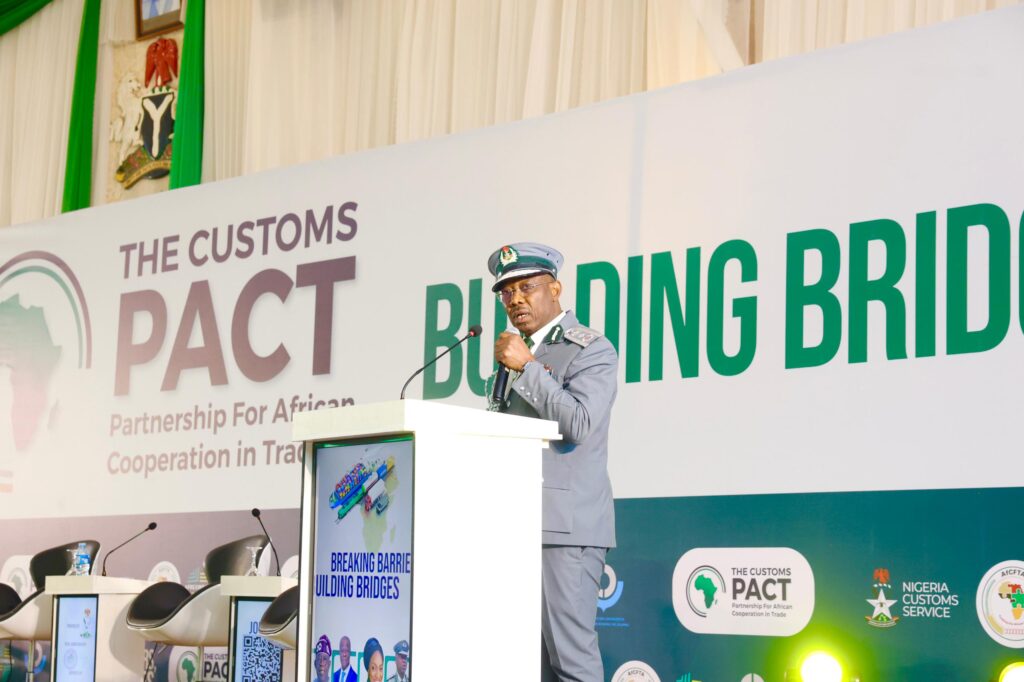
DCG Nnadi making a presentation during the event
In conclusion, it must be stated that the C-PACT Summit is more than a gathering of Customs chiefs—it is a test of Africa’s resolve to move from promises to progress. Tinubu’s charge is clear: integration must be engineered, not proclaimed. The credibility of AfCFTA, and indeed Africa’s economic future, depends on whether governments can deliver reforms that businesses feel in their daily operations.
It must also be noted that the C-PACT Summit has thrown up a number of issues that would likely dominate trade discussions in the coming weeks. Thus far, it is incumbent on every country to seriously interrogate their respective trade reforms and policy directions which must be tailored to align with the objectives of AfCFTA.





